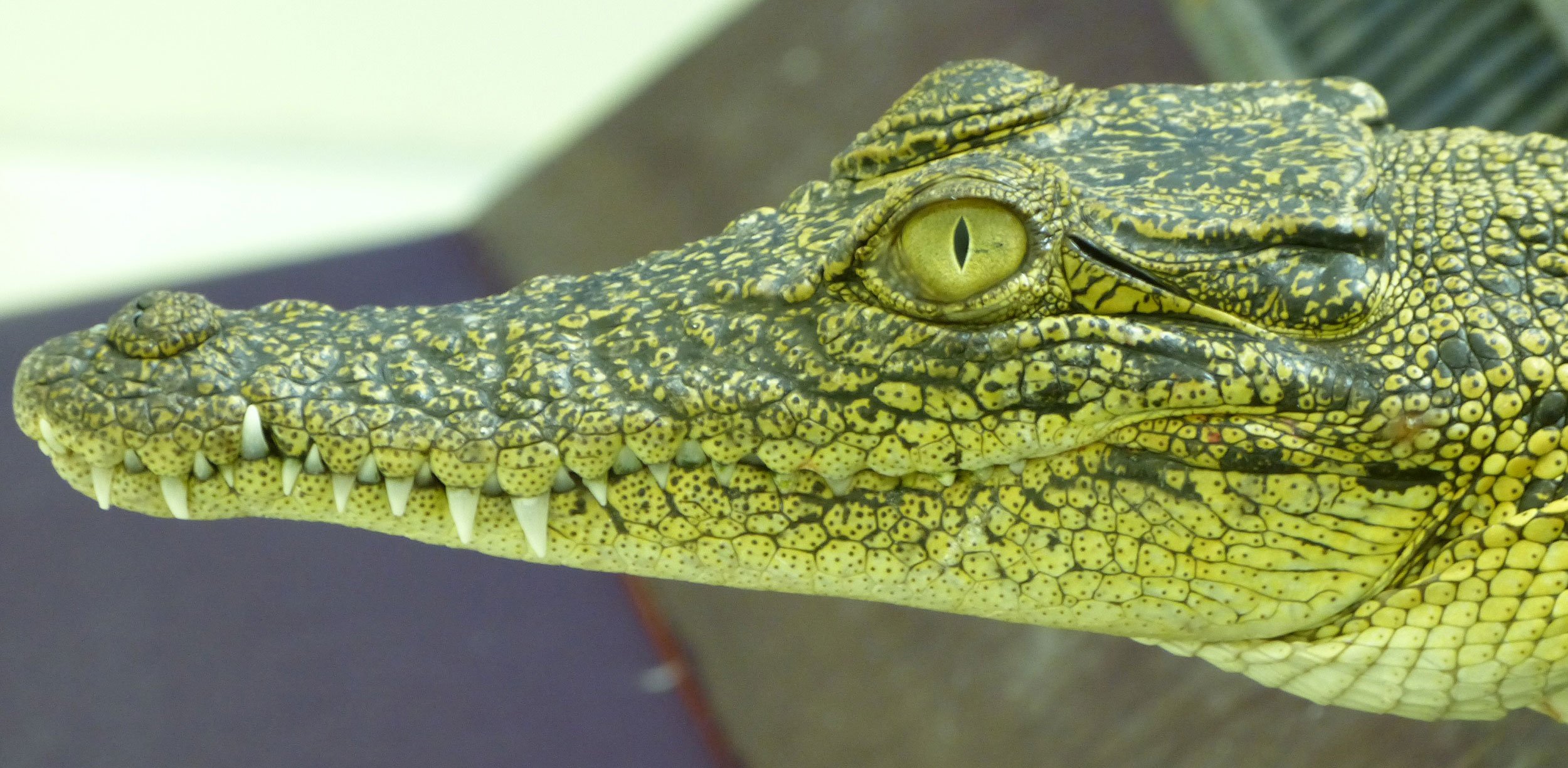Crocodile eyes more sophisticated than previously thought

AUSTRALIAN RESEARCHERS HAVE undertaken one of the most detailed studies of the crocodile retina to date, and discovered that crocodiles are even more finely tuned predators than we realised.
One key find was notable differences between the vision of saltwater and freshwater crocodiles when underwater.
“While both species have similar environments above water level, it’s a different story when you get underwater,” said Nicolas Nagloo, a PhD student from the University of Western Australia’s (UWA) School of Animal Biology, who led the research with a team from UWA and Macquarie University in Sydney.
“In a fresh water environment you have more red light, whereas in saltwater you have more blue,” he added, explaining that the visual systems of these two species have adapted to specific light conditions.
Prey on the horizon

University of Western Australia Juvenile saltwater crocodile. (Photo credit: University of Western Australia)
The researchers compared the eyes of the two Australian species and found that a part of the retina called the foveae stretches across the back of their eye, parallel with the horizon – allowing them to see fine detail without having to move their head. All the better for lying in wait and eyeing up possible prey.
While most features of a crocodile’s vision are already known, such knowledge of their retinal adaptions has previously been limited.
Dr Adam Britton, a Senior Research Associate at Charles Darwin University in the Northern Territory – who wasn’t involved in the study – commented that the crocodile retina’s fovea is quite exceptional.
“Logically, it allows crocodiles to focus on potential prey, or threats, or other crocodiles along a horizontal plane where the most points of interest are going to appear,” he said, adding: “It partly explains why crocodiles tilt their heads upwards if they see prey above the horizontal plane, to better place it in focus.”
Seeing in colour
The study, published in the Journal of Experimental Biology on Wednesday, also found that crocodiles have surprisingly sophisticated colour vision, which is matched to the light condition underwater.
Specifically, saltwater crocodiles’ colour photoreceptors were slightly shifted to shorter (bluer) wavelengths compared to freshwater crocodiles – even though neither species can focus underwater. According to Nicolas, this suggests “they may use their vision underwater more than we have previously thought.”
Adam added that learning about crocodiles’ visual ability is critical to our understanding of how to conserve remaining wild populations.
READ MORE:




